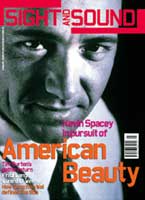Primary navigation

France/Italy/Portugal 1999
Reviewed by Keith Reader
Our synopses give away the plot in full, including surprise twists.
Paris, after World War I. The reclusive and asthmatic Marcel Proust, all but bedridden, is finishing his opus A la recherche du temps perdu. He scrutinises photographs of the major figures in his life and the fictional text. The rest of the narrative oscillates between the Verdurin and Guermantes salons in Paris, Marcel's childhood in the village of Combray, his youthful summer vacations at the Norman resort of Balbec, later stays in Venice and the war years in Paris.
From childhood to maturity, Marcel moves through an at once real and imagined world whose denizens include: the camp Baron de Charlus, Charlus' one-time lover the violinist Charlie Morel, the war-hero Saint-Loup and his wife Gilberte, the Prince de Guermantes and his wife Oriane, the brassy socialite Madame Verdurin, Charles Swann and his coquettish wife Odette (Gilberte's mother), and the actress and singer Rachel. Past and present, the experienced, the remembered and the partly forgotten overlap and flow into one another like the stream with which the film begins. At the end, the older Marcel watches as his boyhood self runs along the beach at Balbec, time at last regained through art.
The less-than-linear form of the synopsis above illustrates one of the major difficulties in filming or writing about Proust's towering classic of modernity. The story of an invalid writer facing premature death who retrieves through art his childhood anxieties and adult frivolities, the gap between the overarching narrative and the myriad smaller narratives which comprise A la recherche is too vast to be bridged even in a film as long as this. Earlier Proust-based films have dealt with this problem by narrowing their focus to the microcosm that is Un Amour de Swann (Volker Schlöndorff's film of that title), or to the final days of the historical Proust's life as he wrote against the clock of death (Percy Adlon's superb Céleste). For Time Regained Raoul Ruiz adapts a similar strategy, but goes for broke by concentrating on the work's final volume, in which its multifarious narrative strands converge and it becomes clear that its end is in its beginning. The result is richer and more inclusive in its sweep than previous adaptations and more visually spectacular. The colours - notably the gold of many of the salon scenes echoing the sands of Balbec or the architecture of Venice - are ravishing, and the movements of the camera, at once caressing and sweeping, impart a thrill rarely encountered in the cinema.
Nonetheless, Time Regained is anything but a heritage movie, as you would expect for a film made by a Chilean expatriate with a background in leftist politics and experimental film-making. Ruiz rewrites Proust in cinematic terms. The camera movements - particularly at the end where we move from the Guermantes salon through a 'room of memory' dotted with top hats to a terrace and the beach at Balbec - correspond to the oscillations of the written narration between the recollected and the imagined, the past and the present. In this respect the film evokes Resnais' Last Year at Marienbad, notably in the salon scenes (Madame Verdurin's high-pitched laugh, as if poised on the brink of hysteria, echoes Delphine Seyrig's in Marienbad).
Time Regained is a tour de force, gorgeous yet stark. That starkness is achieved partly through the constant threat or actual presence of war which gives an edge to the scenes of brittle social comedy, partly through the unflinching way the film treats such scenes as Charlus' flagellation in Jupien's gay bordello, which offsets potential charges of voyeurism by the exquisitely simple device of framing the narrating Marcel in a window as the blows descend. The cast are on the whole splendid. Catherine Deneuve is at once queenly and raffish as Odette, Emmanuelle Béart gives the most mature performance of her career as Gilberte and Marie-France Pisier is magnificently high-camp as Madame Verdurin. If there is a false note it's struck by John Malkovich's Charlus - competing, alas, with Alain Delon's magnificent performance in the Schlöndorff film, and far too reedy-voiced and mincing to carry the same weight as Proust's grotesque, but ultimately loving and loveable character.
My one anxiety concerns how accessible Ruiz's film will be to an audience with little or no knowledge of the source novel. Its extraordinary textual sweep is likely to bewilder such viewers. The brief allusions to the force of involuntary memory, notably in the 'madeleine scene', could well pass them by altogether. However, Ruiz has come closer than either of his predecessors to the superhuman task of filming Proust in his entirety, for which it would be churlish to criticise him. The audacious transposition of the finale, from an epiphany in the Guermantes salon to one on a Norman beach, works because the waves of the sea echo the flowing stream of the beginning, in a triumphant cinematic correlative of what a leading Proust scholar once described to me as an extraordinarily happy ending. The happiest ending, for viewers unfamiliar with the original, would be for them to be drawn to it by Ruiz's masterly film.